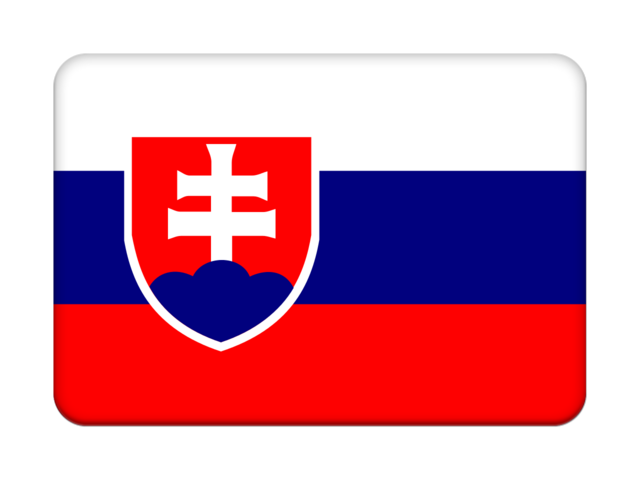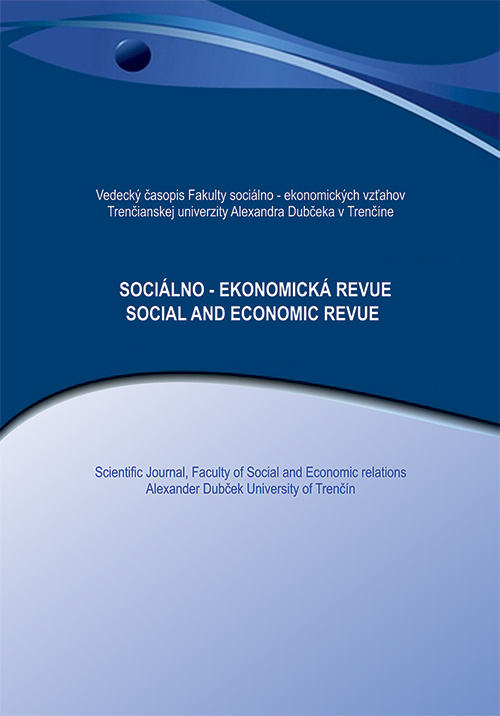YOUTH WORK IN REGIONAL CONTEXT
The term youth development as a way of defining the efforts of youth workers and youth service organization and their acceptance in practice is relatively new. In the past two decades there has been a great deal of interest and attention focused on development principles and strategies to be used in the practice of youth work. The main aim of the paper is focused on the evaluation of the system of youth work development in Trenčín self-governing region. Therefore, we offer a brief overview of the system of youth work, stating the basic characteristics and emphasis on the activities of the Regional Leisure Centre in Trenčín - the Regional Youth Centre.
Vydanie: 2020/1 Strany: 29-39 Klasifikácia JEL: J13, I20, I28
DOI:
Kľúčové slová: youth, youth work, participation, regional and youth policy, cooperation
Sekcia:
Kontakty:
Ing. Katarína Havierniková, PhD.
Faculty of Social and Economic Relations
Alexander Dubček University of Trenčín
Študentská 3
911 50 Trenčín, Slovakia
e-mail. katarina.haviernikova@tnuni.sk
Ing. Silvia Štefániková
Regional Youth Centre
Pod Sokolice 14, 911 01 Trenčín, Slovakia
e-mail: silvia.stefanikova@tsk.sk
Mgr. Mária Petríková
Regional Youth Centre
Pod Sokolice 14, 911 01 Trenčín, Slovakia
e-mail: maria.petrikova@kcvc.sk
Literatúra:
Batsleer, J. R., & Davies, B. (Eds.). (2010). What is youth work?. SAGE.
Blanchet-Cohen, N., & Salazar, J. (2009). Empowering practices for working with marginalized youth. Relational Child & Youth Care Practice, 22(4)
Borden, L. M., Perkins, D. F., Villarruel, F. A., Carleton-Hug, A., Stone, M. R., & Keith, J. G. (2006). Challenges and opportunities to Latino youth development: Increasing meaningful participation in youth development programs. Hispanic Journal of Behavioral Sciences, 28(2), 187-208.
Brozmanová Gregorová, A., Šolcová, J., Siekelová, M. (2018) Dobrovoľníctvo mládeže na Slovensku – aktuálny stav a trendy.Stupava: Platforma dobrovoľníckych centier a organizácií, 148 s.
Delgado, M. (2004). Social youth entrepreneurship: The potential for youth and community transformation. Greenwood Publishing Group.
Deschenes, S., McDonald, M., & McLaughlin, M. (2004). Youth Organizations. The youth development handbook: Coming of age in American communities, 25.
Edginton, C. R., Kowalski, C. L., & Randall, S. W. (2005). Youth work: Emerging perspectives in youth development. Champaign, IL: Sagamore.
Európska komisia. (2007) Nový impulz pre európsku mládež. Biele kniha Európskej komisie. Bratislava: IUVENTA, 99 p.
Európska komisia. (2009). Stratégia EÚ pre mládež, investovanie a posinenie postavenia mládeže. Obnovená otvorená metóda koordinácie s cieľom riešiť výzvy a príležitosti týkajúce sa mládeže.
Euróspke centrum mládeže. (2004). Európsky rámec mládežníckej politiky. Európsky riadiaci výbor pre mládež (European Steering Committee for Youth) (CDEJ) 2004/13. Štrasburg, 17. 09. 2004. 33. zasadanie. Európske centrum mládeže. Lasse Siurala.
Hope, M., Russell, K., & Cooper, C. (2011). Empowerment and participation in youth work (Vol. 1426). SAGE.
IUVENTA. Tvorba medzirezortnej mládežníckej politiky na úrovni regiónov (VÚC). Záverečná správa. (2010) Bratislava : IUVENTA, 100 p.
Jeffs, T., & Smith, M. (2002). Individualism and youth work. Youth and policy., (76), 39-65.
Lavie-Ajayi, M., & Krumer-Nevo, M. (2013). In a different mindset: Critical youth work with marginalized youth. Children and Youth Services Review, 35(10), pp. 1698-1704.
Mahoney, J. L., Harris, A. L., & Eccles, J. S. (2006). Organized activity participation, positive youth development, and the over‐scheduling hypothesis. Social policy report, 20(4), 1-32.
Mortimer, J. T. (2003). Working and growing up in America (Vol. 2). Cambridge: Harvard University Press.
Nolas, S. M. (2014). Exploring young people's and youth workers' experiences of spaces for ‘youth development’: creating cultures of participation. Journal of Youth Studies, 17(1), 26-41.
Ord, J. (2009). Thinking the unthinkable: youth work without voluntary participation?. Youth & Policy, (103).
Štefániková, S. (2018) Žiacke školské rady ‒ Škola demokracie. Trenčín: IUVENTA, 19 p.
Trenčiansky samosprávny kraj. (2016) Koncepcia rozvoja práce s mládežou v Trenčianskom samosprávnom kraji do roku 2020. [on-line] [cit.: 2019-12-02]. available at: https://www.tsk.sk/buxus/docs/Koncepcia%20mladeze%202020.pdf
Tsekoura, M. (2016). Spaces for youth participation and youth empowerment: Case studies from the UK and Greece. Young, 24(4), 326-341.
Úrad pre vydávnie publikácií EÚ. (2018). Úradný vestník Európskej únie C 456. Luxembursko: Úrad pre vydávanie publikácií Európskej únie, 29 s.
Watts, R. J., & Flanagan, C. (2007). Pushing the envelope on youth civic engagement: A developmental and liberation psychology perspective. Journal of Community Psychology, 35, pp. 779–792
Yohalem, N., & Martin, S. (2007). Building the evidence base for youth engagement: Reflections on youth and democracy. Journal of Community Psychology, 35(6), 807-810.


